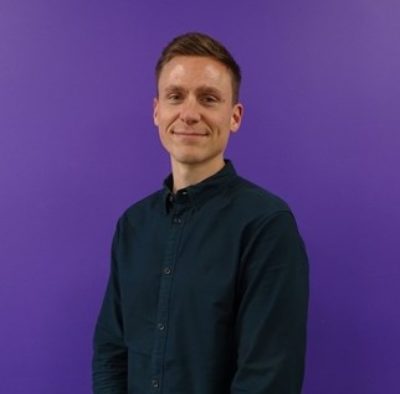



Knowledge is power, so research findings must be open for all to access
"The last thing pancreatic cancer researchers need is another barrier to overcome – a paywall." Chris Macdonald, Head of Research at Pancreatic Cancer UK, explains why open access to research is so important.
Our researchers are in a race against time. With so little improvement in survival over the last 40 years the need for new, better treatments and faster diagnosis for pancreatic cancer is immense. Already hampered by decades of underfunding, the last thing researchers need is another barrier to overcome – a paywall.
When thinking of people involved in the fight against pancreatic cancer I’d forgive you for overlooking the editors of academic journals – but for far too long they have wielded huge influence over which research findings are shared, and how widely. This has created two significant problems.
The first is about sharing research. Pancreatic cancer is a very technically challenging cancer to research, and our dedicated, relatively new community of scientists is still working to answer some basic questions about this devastating disease. Their ability to access the research of their peers informs other studies and prevents duplication, so it’s of the utmost importance that there is transparency within the research community. The last thing we need is for useful knowledge to be trapped behind costly ‘paywalls’, as is currently the case. With pancreatic cancer there is no time to waste.
The second problem is a bias towards positivity. There is a misconception perpetuated by journals – and the wider media – that only positive results matter, that only positive results mean impact, quality or progression. This is nonsense. Anyone who has any experience of research knows that negative results underpinned by quality research are just as impactful because they also help point the way forward. The tendency to present only positive results perpetuates both the underfunding of research in the UK, and the defeatism associated with pancreatic cancer.
So what’s the solution? We want to see the work of pancreatic cancer researchers judged objectively, based on its quality and not influenced by profit or the editorial trends of big journals. That’s why we’ve signed up to the Association of Medical Research Charities (AMRC) Open Research platform. This new initiative provides all researchers funded by the participating charities with a place to rapidly publish any results they want to share. All articles on the platform benefit from timely publication, transparent refereeing and the inclusion of all source data thus removing obstacles to collaborative research and a positive result bias. And they won’t cost money to access.
Pancreatic cancer is the deadliest common cancer. Just as we’re committed to nurturing the careers of the next generation of researchers through our Future Leaders Academy, we want to inspire scientists from other specialisms to join us in taking pancreatic cancer on.
However, it takes a lifelong dedication to make breakthroughs in medical research. To harness this dedication, we need to demonstrate that it is worth committing their career – in terms of novel findings, research progression and sustained funding. We believe that open access can help deliver these key research aspects and, combined with the knowledge that their findings will make tangible, life-changing differences to the lives of people with pancreatic cancer. With open access, the field can be enriched with a growing, passionate workforce.
The portfolio of research projects I oversee simply couldn’t happen without our incredible community of supporters. Open access platforms like AMRC Open research will be of benefit for all of you too. It will mean that every single person who supports us can see where all their time and money goes and all the steps we make along the way.
Ultimately and most importantly, for people with pancreatic cancer, it will mean they have a more efficient, open and informed research community that will develop the early diagnosis and new treatments that are so desperately needed.


